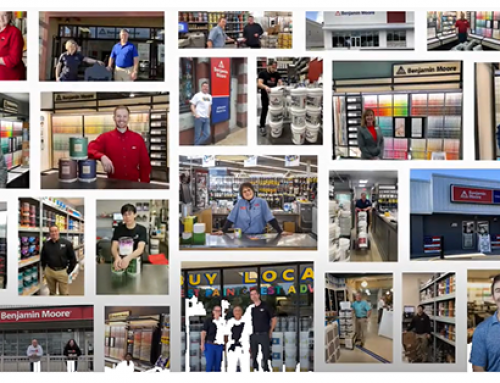Smartphones have taken over pretty much every aspect of our lives. We email, text, socialize, shop, map out directions, keep lists, set alarms and reminders, and search for products, stores, and restaurants on our smartphones. In 2015, mobile internet searches on Google eclipsed desktop searches, and the way people are doing those searches is by speaking directly to the phone and asking a question. With voice search gaining in popularity with each passing day, the way people interact with the voice search function on their phones will directly affect the way Google serves up it’s fine-tuned, algorithmically-calculated search results.
 For example, if you are on a computer and want to search for a shoe store near you that sells XYZ running shoes, you will most likely type in something like “buy XYZ shoes near me” or “buy XYZ shoes” accompanied by your zip code. People tend to speak to the voice search function on their phones the way they speak to a person and so they will say something like, “What is the best place to find XYZ shoes for less than $75 near me?” And just like that, everything about the way you optimize your website for keyword searches has changed.
For example, if you are on a computer and want to search for a shoe store near you that sells XYZ running shoes, you will most likely type in something like “buy XYZ shoes near me” or “buy XYZ shoes” accompanied by your zip code. People tend to speak to the voice search function on their phones the way they speak to a person and so they will say something like, “What is the best place to find XYZ shoes for less than $75 near me?” And just like that, everything about the way you optimize your website for keyword searches has changed.
Keyword Searches: A Short Primer – In a perfect world, your website should be filled with “keywords” that your customers search for on internet search engines like Google, Bing, etc. Say you sell “Superior” paint in quart and gallon sizes. When you add pictures and verbiage to your website describing the Superior paint that you sell, you include keywords that people might search for when looking for that brand and size can of paint. The search engines use “robots” to comb over your site and detect those keywords. They then rank your site in the search pages for those keywords. This is a very simplified example, because your rank on the search pages involves many more things than just the keywords you have on your site. However, keywords are a very important part of any search engine’s ranking system.
In the past, concise keywords were what you wanted to rank for; the shorter the better. As we mentioned above, when typing something they want to search for, people tend to be brief: “Superior paint quart (zip code).” When they do a voice search, it comes out more like a question: “Where can I find Superior paint in a quart size can near me?” So in the past, you wanted to rank high in the search pages for “Superior paint quart”. Now, with voice search having surpassed desktop search, you want to rank high (if not in first place!) for “Where can I find Superior paint in a quart size can?” Those “long-tail keywords” are now what you want to rank for. You can do more research on the keywords you need to be using on your website with Google’s Keyword Planner. You need to be signed in to Google to use it, but you don’t have to be planning on an AdWords campaign to use it.
 Location, Location, Location – We’ve talked about how Millennials are the largest group of shoppers at the moment. We know that those Millennials usually want what they are searching for NOW. According to Bing, over half of all voice searches include the words “near me.” This means that all retail website SEO should now include “GeoLocation”, a web strategy that allows search engines to return the best results for the answer to the “near me” question. We will be talking a little more about GeoLocation in a future post.
Location, Location, Location – We’ve talked about how Millennials are the largest group of shoppers at the moment. We know that those Millennials usually want what they are searching for NOW. According to Bing, over half of all voice searches include the words “near me.” This means that all retail website SEO should now include “GeoLocation”, a web strategy that allows search engines to return the best results for the answer to the “near me” question. We will be talking a little more about GeoLocation in a future post.
Voice search certainly has changed the landscape of search engine optimization. It is not something to be taken lightly by any retailer, regardless of whether you have an e-store or not. Even if you don’t, there are plenty of customers looking for where they can go to purchase the products you sell. If your website isn’t optimized in such a way that those searchers find YOUR STORE at the top of the voice search results, you could be missing out of hundreds of potential sales.







